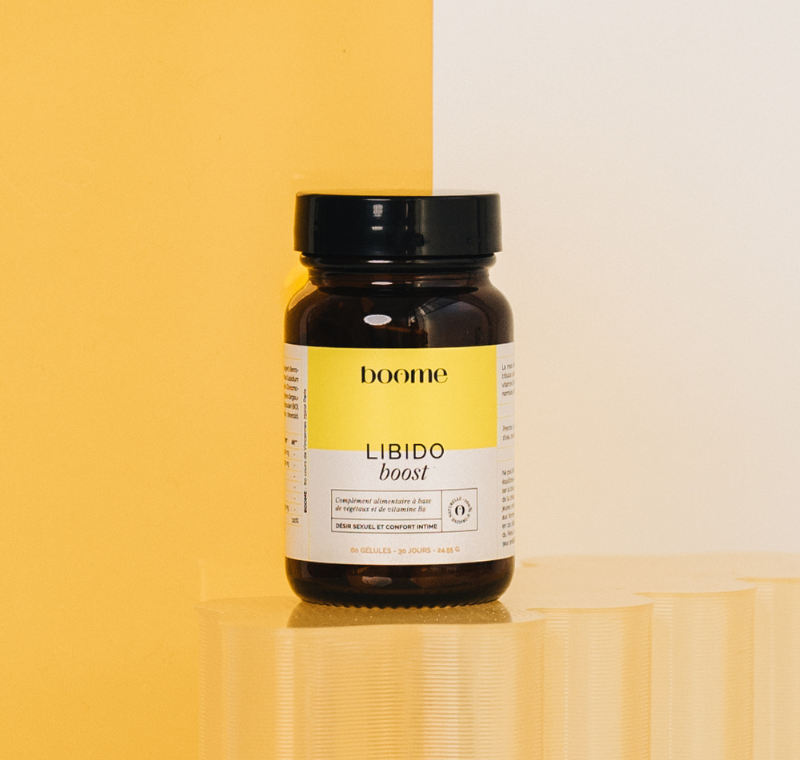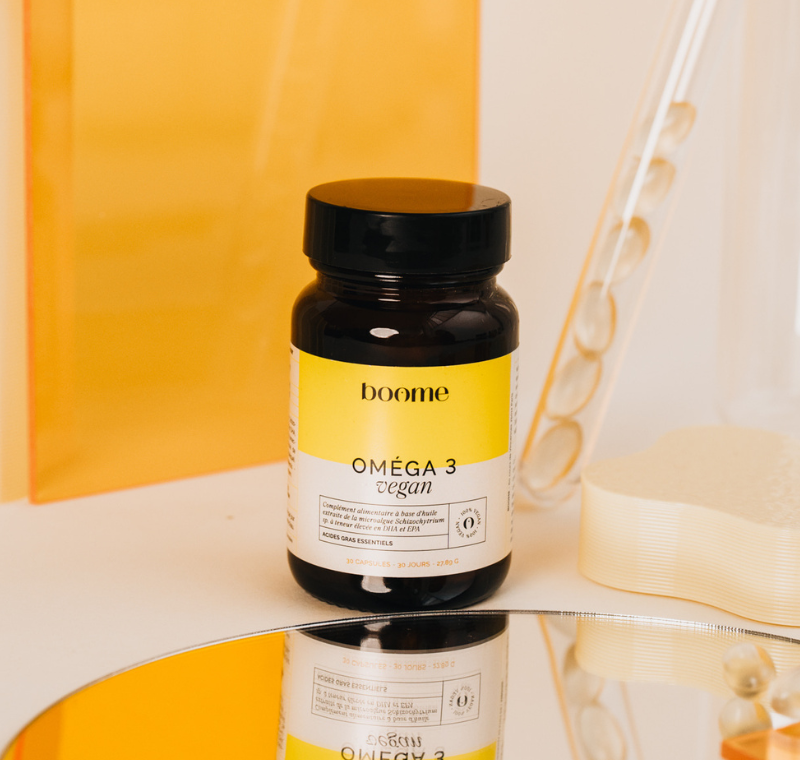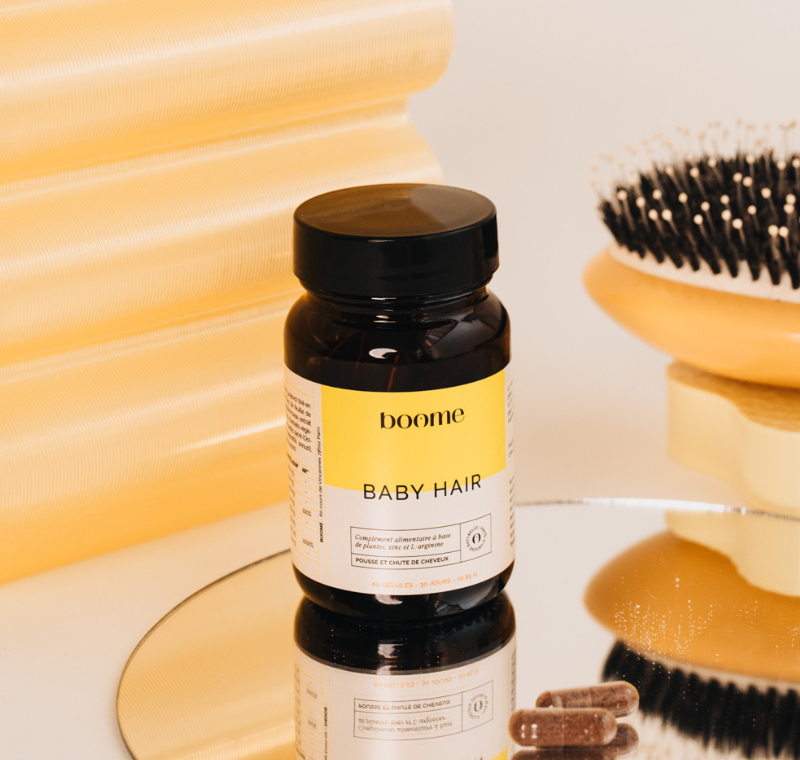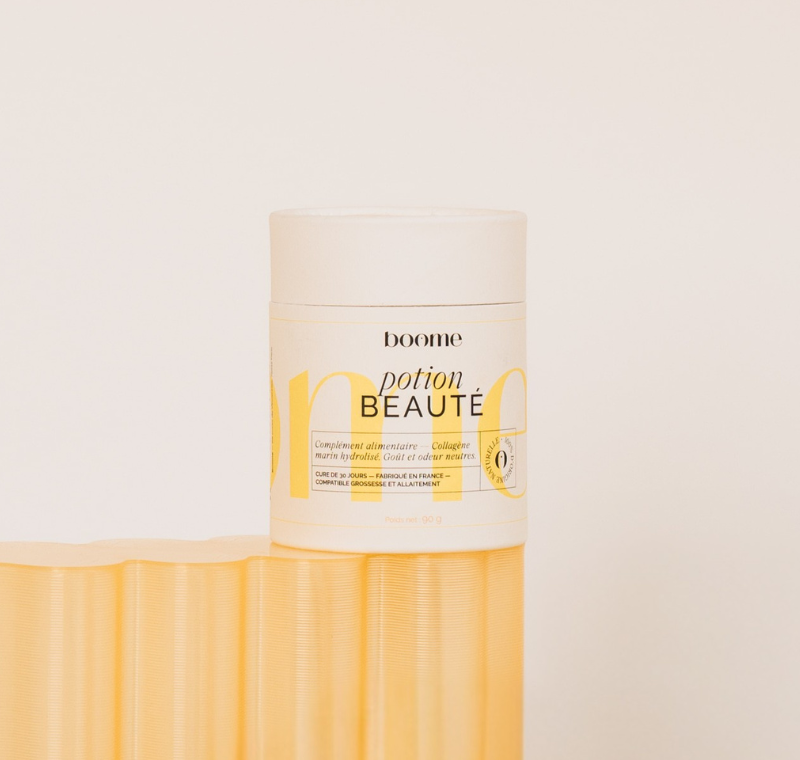
For your contraception, you've opted for the copper IUD or are considering it. But one question is nagging you: will it harm your libido? Between promises of a hormone-free contraceptive and concerns about its side effects, this choice can raise many doubts. And rightly so, because the answer isn't so simple. While some women notice changes in their desire, others, on the contrary, find peace of mind. So, is there a link between libido and the copper IUD? In this article, we explore the real impact of this contraceptive method on your sexuality.
The copper IUD: how does it work?
The copper IUD (or intrauterine device) is a long-term, hormone-free method of contraception that's proving very popular among women. But how does it work, exactly? This small, T-shaped object with a copper wire is inserted into the uterus by a midwife (or another healthcare professional, contrary to some popular beliefs about the IUD ). And its effectiveness is due to the presence of copper.
Yes, because unlike its hormonal counterpart, the copper IUD does not work by altering your menstrual cycle. Nor does it affect the production of sex hormones (estrogen or progesterone). Its action is based solely on the continuous release of small amounts of copper into the uterus.
Copper, on the other hand, is a natural spermicide: it creates a toxic environment for sperm, preventing them from swimming properly toward the egg. In other words, it stops implantation by altering the uterine lining, which significantly reduces the chances of an unwanted pregnancy!
For comparison, the hormonal IUD works in a very different way. It releases a hormone (levonorgestrel) that works in several ways:
- It thickens cervical mucus, making it harder for sperm to pass through.
- It reduces the thickness of the uterine lining and reduces periods, or even (sometimes) makes them disappear completely.
- It can (sometimes also) stop ovulation in some women.
Women who want to maintain their natural cycle will therefore more often opt for a copper IUD than for hormonal contraceptives.
Does the IUD lower libido?
This is a question we hear a lot! So, we decided to give you a concrete answer. Whether it's copper or hormonal, let's see how the IUD can impact libido.
Libido and copper IUD
As you've probably figured out, the copper IUD doesn't directly affect hormones. This makes it an important consideration for those who want to avoid certain side effects! However, some women have reported a decrease in libido after using this method of contraception. While copper doesn't have a negative hormonal impact, certain indirect factors can still affect sexual desire. For example:
- Heavy or even painful periods are common side effects of this method of contraception. This can impact your overall well-being, and consequently... your libido.
- A complicated period means fatigue, which makes it less likely that you'll want to have sex.
- Some women report discomfort or discomfort during intercourse, which, of course, affects their libido.
It's worth noting, however, that a woman's libido isn't necessarily affected by her method of contraception. Some IUD users don't experience any of this! Others even gain so much peace of mind that they notice an improvement in their libido. Everyone has their own experience, their own experiences, and their own feelings.
Libido and hormonal IUD
The hormonal IUD, on the other hand, can have a more direct impact on libido, since it works by releasing hormones into the body. And, as we explained, these can influence the natural production of estrogen and progesterone, which play an important role in sexual desire.
Women report a decrease in their libido after using this hormonal contraceptive. This is due to the side effects it causes, such as:
- mood swings;
- vaginal dryness;
- a decrease in natural lubrication.
These effects can also affect the comfort of sexual intercourse and, therefore, desire.
However, it's the same story as with the copper IUD: other women don't experience any of this. And they appreciate this hormonal contraception for its other benefits, such as... lighter periods, or even no periods at all! This can actually improve their overall well-being and therefore their libido. Again, it all depends on your body and your sensitivity to hormones.
Looking to boost your libido naturally? Be careful, you might fall for our libido supplement !
Beyond libido, what are the benefits of the copper IUD?
Beyond the issue of libido, the copper IUD has many benefits! This makes it a preferred choice for many women. Here are a few:
- Compared to the hormonal IUD, the copper IUD does not cause any negative hormone-related impacts, such as breast pain or weight gain.
- It's a form of long-term contraception. Once in place, it can remain effective for between 5 and 10 years, depending on the model. You don't have to think about it every day—convenient, right? This benefit sets it apart from the contraceptive pill, which requires regular, daily use to limit any risk of pregnancy.
- This method of contraception is one of the most reliable, with an effectiveness rate of over 99%. So rest assured: you're super well protected!
- Once removed, the return to fertility is immediate, making it an excellent choice for women who are planning to have a baby.
- Compared to other hormonal contraceptives, the copper IUD also offers greater flexibility. There's no need to remember to take it at the same time every day, as with the progestin-only pill! This is a relief for those who lead busy lives. Or who easily forget their medication, for example.
- Finally, it does not interact with other medications, unlike certain contraceptive pills, the effectiveness of which can be reduced by certain treatments.
Have you opted for the pill and are wondering if it has an impact on your sexual desire? Our article on the Pill and Libido should provide you with some answers!
What are the disadvantages of the copper IUD?
Yes, advantages also mean disadvantages! And even if the copper IUD is very effective, it does have a few drawbacks that are important to know about before making a decision:
- The first (and probably most common) is menstrual periods: they can be longer, heavier, and more painful. Many women report heavier menstrual flow after copper IUD insertion, often accompanied by more intense cramps.
- Irregular bleeding can also be included in this phenomenon, especially during the first few months after insertion. While these effects tend to diminish over time, they can still be a limiting factor, especially for those who had relatively light cycles before using the IUD.
- Another drawback to consider: IUD insertion can be painful for some women, especially if they have never had children. The body reacts to this new foreign object with some contractions.
- Although the risk of displacement is low, it does exist. This is why it's important to regularly visit your doctor to ensure the IUD is properly in place. A displaced IUD can cause pain, discomfort, or even lose its contraceptive effectiveness.
- Finally, more surprising, but no less important: the copper IUD can have an impact on the vaginal microbiota. A recent study from the Oxford Academy showed that using a copper IUD can increase the risk of bacterial vaginosis. This is because the copper contained and released by the IUD can reduce the population of lactobacillus (a form of beneficial bacteria) and promote the growth of bacteria associated with infections. This imbalance can cause inflammation and lead to vaginal infections in some women. Although, rest assured, this is far from systematic (and thankfully so!). These effects are generally reversible after the IUD is removed.
In short, while the copper IUD is a natural and long-lasting contraceptive solution… Keep all these aspects in mind to determine if it is suitable for your personal situation.
So, what can we conclude from all this? Well, the copper IUD is an effective, hormone-free contraceptive method. It's ideal for those who want to maintain their natural cycle. But while it doesn't have a direct effect on libido, indirect factors can still influence it. Take these factors into account to choose THE contraceptive method that's best for you!










